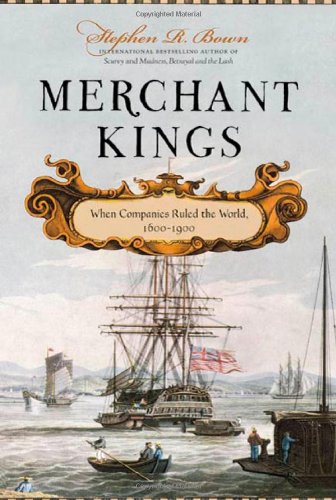Merchant Kings: When Companies Ruled the World 1600-1900
This is a compilation of vignettes detailing how six men explored and exploited new territories for the enrichment of enterprises and their stockholders. In the 17th century, Jan Pieterzoon Coen and the Dutch East India Company made fortunes in the spice trade, and then Peter Stuyvesant ruled New Amsterdam for the Dutch West India Company. In the mid-18th century, Robert Clive, a clerk and trader for the English East India Company, brought England’s military power to India, ensuring England’s monopoly in the tea trade. In the 18th century, the narrative moves to Alaska and focuses on Aleksandr Andreyevich Baranov, who works for the Russian American Company and dominates the fur trade. Also in North America, Scottish-born George Simpson, a financial genius, guides the Hudson’s Bay Company’s fur trade for England. The last merchant king is Cecil John Rhodes, whose name will be most familiar to 21st-century readers as the owner of the African Kimberly Diamond Mine and principal owner of De Beers, diamond merchants.
Stephen Boun’s narratives show these men in a clear, dispassionate, not always unsympathetic way. He describes their innate one-sightedness that enabled them to fix on their goals, and the fact that they all had “inconspicuous beginnings.” The one ability these men have in common is a ruthless, unrelenting drive to succeed at all costs. An interesting read.










